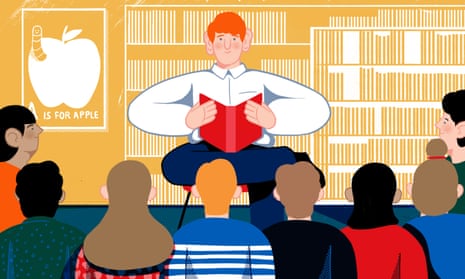Unlike many librarians who always dreamed of standing behind a counter and stamping books, I came to the profession by accident. When I left university with a humanities degree in the 1970s, I had no clue about what I wanted to do with my state-funded higher education. I applied for a job as a gas meter reader which seemed suitable for a working-class lad from a council estate, but at the interview I was told that I was over-qualified and so I became a library assistant instead.
I quickly discovered that there wasn’t much to the library lark, but that if I wanted to get on I would have to become a fully qualified librarian.
Armed with my diploma and a burning social conscience, I set out to change the world of public libraries. Nearly 40 years on I have made the smallest of dents in its battleship armour. But on the way I have made met some amazing people.
My bosses have mostly been of the keep-your-head-down-and-don’t-rock-the-boat variety. Colleagues have ranged from shrinking violets to strident activists who share my passion for social change. And the customers – whom we endearingly call borrowers, like those little people who live under the floor – have come from every walk of life. Public libraries seem to attract more than their fair share of what might be called “characters”.
There is never a dull moment in the life of a public library. We open our doors and anyone can come in, so we never know quite what to expect and every day is very different. One of the most extraordinary things that has happened to me at work was when I was asked to search my central London library for bombs during a terror alert. I had contacted the police when I received a bomb threat but, as they pointed out, “you know what the library looks like, so please have a walk around to see if anything is out of place”. Fortunately it was a false alarm and there were no incendiary devices hidden in the card catalogue.
Some of the funniest things that have happened to me at work include the discovery of some remarkable objects left in books, presumably as book marks. I vividly recall opening a detective novel to find a piece of streaky bacon stuck between its pages. I pictured the borrower, reading his book at the breakfast table before rushing off to work, and reaching out for whatever was at hand to mark his page. I also worked at a library where a colleague decided to close the building and call the police when a used condom was discovered oozing its contents through the well-thumbed pages of a certain DH Lawrence classic.
I love my job so much that work-life balance has never been an issue. Plus I am very happy to take my work home with me because I never leave the library without a big stack of books, CDs and DVDs.
The only regret I have about my long career in public libraries is that I have not been able to convince more librarians that they should be less book-focused and more people-focused; that they should look outward to the community rather than inward to the library; that they should get rid of desks and counters and do more active roving inside the library and outside in the community; that they should put less emphasis on the excellence of the collection and more on providing books that people actually want to read; and, most important of all, that libraries should be community-led and based on the needs of the public they serve.
What I dislike most about the profession is its insistence on standards of excellence and a rule-bound culture which tends to exclude those for whom public libraries were founded in the first place – the deserving poor and, indeed, the undeserving poor as well. For it is a fact that libraries are used most by those who need them the least (the middle class) and used the least by those who need them the most (the working class).
The job has not changed fundamentally from when I started out. Libraries have been modernised through technology but their underlying strategies, structures, systems and culture remain the same. We have a plethora of rules and regulations, and the part of my job I dread the most is having to ban someone from the library, because usually they come from the section of society that needs libraries the most. But this is more than balanced out by the many pleasures of the job, which include helping borrowers to improve the quality of their lives and meet their needs – whether that is for books and information, or helping them to find a job or a roof over their head.
Librarians are chronically underpaid but we don’t do the job just for the money. It brings a great deal of satisfaction helping others who are significantly less fortunate than ourselves. More money is always good, but what we really want is recognition from politicians that we are the fourth emergency service. Proving this is difficult, but we are already starting to see what happens when public libraries are closed down. Library closures are low-hanging fruit but the tiny amounts that this saves from the public purse is more than outweighed by the costs of increased crime, and worsening health and education outcomes. While we cannot demonstrate a direct link, every librarian knows that we are an important ingredient of the glue that sticks communities together.
